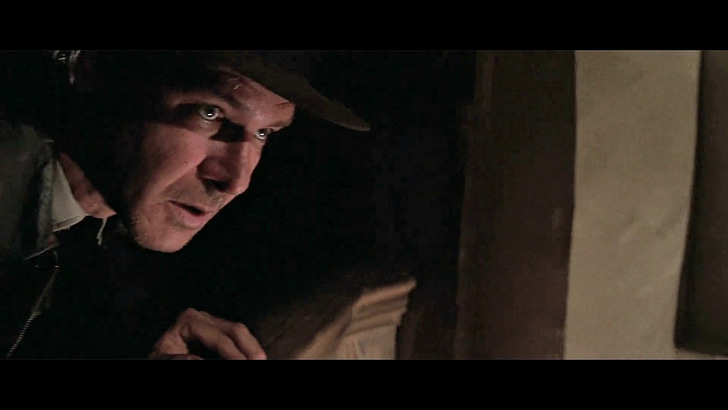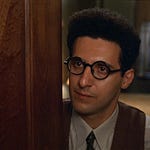I wish I could wear a wire to the jacuzzi at the YMCA near my house. I wish I could record the voices of the old men who stand in the hot tub for way longer than they’re supposed to and harangue everyone who joins them at the hottest tubby-tub in the city.
There’s this guy who goes there every day with a plastic cup full of ice. I have learned that under no circumstances can I make eye contact with him. If I do, he will ask me a question, pretend to listen to my answer, and then talk at me about whatever is on his mind until someone else gets there—fresh meat!—or I leave.
The other day, he learned that another man in the rub-a-dub-dub tubby-tub had served in the Marines, in Vietnam. The ice cup guy proceeded to admit that while he himself never served in the military, he admired what the Marines have done and continue to do.
He asked this veteran if he had heard of Fallujah. Did he know what the Marines did in Fallujah? “They cleaned that place out,” he said.
I don’t know why he brought up the battles of Fallujah—there were two of them, in 2004. A lot of people died in those battles. Many civilians were killed. Twenty-seven US servicemembers perished in the first battle of Fallujah. In the second, ninety-five were killed. Many more were wounded.
I had to look those figures up; I am no military historian; but I remember hearing how brutal the fighting was in Fallujah, back when it was happening. If it had occurred to me, I would not have guessed that I would hear an old man who, like me, was never in the military, recall it fondly twenty years later to a real-life Marine combat veteran.
Maybe it’s a way to support the troops, to brag at the YMCA about bloody conflicts you had nothing to do with, while having voted for the guy whose administration is working to eliminate what real-life support veterans have in the USA. I mean, I’m pretty sure the guy with the ice cup voted for our current president; he insisted to yet another old man, not long ago, that the president was making strategic use of tariffs, that the man he was speaking to was misinformed when he questioned that strategy. The president was making all those other countries finally pay. It was the right thing to do.
More recently, I heard this same guy tell a couple of men, who were eating up everything he said with grins on their faces, how glad he is he doesn’t live in a country with secret police, like the Gestapo coming and hauling you away to a secret prison. He’s so glad that instead of that we have the regular police. “And if you get pulled over,” he said, “you know what to do, don’t you? You put your hands on the steering wheel, you keep them there, and you do whatever they say. ‘Yes, dear. No, dear. Yes, hon. Mm-hmm.’” He meant, in case it’s not clear, that you should do what they say as if you were obeying the orders of your domineering wife.
This prompted a man who was almost completely submerged in the water, like you could only see his bald head sticking out from the surface, to talk about how he would never, ever take his wife with him to get his pontoon boat reupholstered.
I can’t wear a wire to the YMCA jacuzzi. I always have on a bathing suit when I’m there, and no shirt. It’s very sexy, and someone would see the wire. They would ask about it. I would have to talk to them. Also, the wire would get wet.
I could wear a suit and a tie to the jacuzzi. But I think someone there might think something was up if I tried doing it that way.
Why am I like this? Why do I complain about people? What if that guy from the jacuzzi reads this? Isn’t it bad enough that all the slime and the juices that ooze out of that old man’s pores and his hair and scrotum get into the hot tub and mix with my slime and touch my skin? I don’t want that man to get mad at me, and splash his juice into my mouth in retribution.
I’m not really worried. I know what will happen if that guy reads this. He will go straight to the hot tub, make eye contact with a stranger, tell them about it, and then yell at them about something else for forty-five minutes while chewing and slurping ice.
But you know what? I think that my tendency to find a problem with every experience I have, and my insistence on complaining about even the good things that happen in my life, help me as a fiction writer.
One way I make money is by reviewing and critiquing the work of other writers. I read entire novels sometimes, by writers who think they could use some assistance. Lately I have read several manuscripts that have a fundamental problem running through them: they are lacking in tension. They have no conflict.
In scene after scene, characters get along with one another. They have a great time. Maybe one character develops a crush on a new character, who arrives from someplace else. Everyone encourages this person to pursue their crush. There’s no competition; there is no strife. Everyone is living it up in their personal galaxy of happiness—and it’s not what anyone wants to see when they turn to a work of fiction. It’s what they want in their actual lives, and it’s what everyone ought to have in their one life. But it doesn’t make for good entertainment.
I don’t like talking about “conflict” in fiction, because it implies that there need to be forces clashing with one another in an overt fashion. Something like that. Most of the time, it seems to me, there isn’t conflict in a work of fiction so much as there is tension, or anxiety. I prefer to use those words.
Friction is another word that works. I don’t have a lot of conflict in my daily life, but there is definitely friction. Sitting in the jacuzzi with a weird guy monologuing to a veteran doesn’t bring conflict into my life. It does, though, feel like friction.
But whatever you call this thing, this element, a work of fiction needs it. It’s the fuel that makes the campfire burn, and no one wants to gather around a fire that’s gone out or was never lit. So if you don’t have this fuel, this fundamental element of narrative, then you have failed to do what you sought to accomplish, which is to write something other people will want to read.
You have to get the people you created to argue with one another. Something like that, anyway. You have to have them at least disagree. They both want the same thing but one of them can have it and not the other.
An example I like to use, because no one ever knows what I’m talking about, is the anime series Cowboy Bebop.
The show is about bounty hunters who live on a spaceship, and who work as a team when they have to. But they don’t have much in common with one another, and they seem to have only come together as a team as a last resort. In pretty much every episode, at the start or at the end, we watch as they fight over small things that aren’t important. They are out of food and they blame each other for not having any money. Someone forgot to water another person’s plants when they were out on a job. When they have to work together, they make a fine team, but at all other times they act like they are the worst things that ever happened to each other.
It’s that inability to get along that makes this TV show fun to watch. If they were mutually supportive and respectful good listeners who were curious about one another’s feelings, it would be the dullest thing in the world. And that ought to be instructive for us writers who want to make things that are fun, or at least interesting, to read.
This is, like, Fiction Writing 101 stuff, I know. But I’ve been thinking about it because I realized I have come to be something of an absolutist about the need for conflict/tension/anxiety/friction. I’ve come to feel that every line, or nearly every line, of a work of fiction has to be refracting some kind of strife in order for the thing to be worth reading. The fiction writer’s job, when presented with a conversation between two people, is to find a way to make it difficult for everyone involved. Every interaction must be a battlefield.
Is that really true? Must all interactions in fiction be battlefields? Probably not. I’m probably overstating it, as usual. I mean, if you read a book like Austerlitz by WG Sebald, Speedboat by Renata Adler, Nicholson Baker’s Traveling Sprinkler, Open City by Teju Cole, or a Lydia Davis short story, you are likely to find areas where there’s no battle underway.
Except: this is why I find it useful to use words other than “conflict” to describe this fiction-fuel I’m going on about. Maybe there’s not much outright strife in the books I’ve listed above, but there is an awful lot of anxiety. There is tension.
And so, yeah, I have come to justify my insistence on making the worst of every experience, no matter how good it is, by deciding it’s good for my fiction writing for me to be like that. If I’m constantly looking for problems, everywhere I go, I get better at making problems for the characters I create.
Still I took a measure, recently, to mitigate my negativity. I wrote but did not send the Hoedown that I wrote about the Oaf of Oklahoma.
I took my elder daughter to Oklahoma City, to see Caroline Rose perform a solo show at this small venue they have there called Factory Obscura: Mix Tape.
I don’t know how to explain this place, the Mix Tape. It’s made out of rooms, and in each room an artist has created an installation that’s visual but also audial. There are many things to look at and many things to hear: music, voices, whatever. They have a website where you can see what it’s like inside if you care.
In addition to the art maze, they have a garage where musicians can perform. And Caroline Rose was performing there, so I felt I had to go.
Also, Caroline Rose is very good. If you don’t believe me, watch this thing:
That’s not even a new video.
My daughter and I were some of the first people to arrive at the Mix Tape and stand around and wait for the show to begin. But we weren’t the first to get there, nor were we the worst.
The first group to arrive at the venue included a man who must have been six-foot-two, maybe taller than that, and who, let’s say, would make a better door than he would a window.
It was a standing-room-only show, and this sizable fellow planted himself right in middle of the space in front of the stage, exactly in front of where Caroline Rose was going to stand when she performed. It was where the mic stand was. It was center stage.
The stage was raised only slightly, and Caroline Rose is not a tall person. Indeed: when they came out and started playing, I couldn’t see them at all. I was in the second row of people. I was standing probably five feet in front of them, but they were invisible to me, because this substantial man had felt the need to get as close to them and to the stage as possible.
I don’t think most of the other attendees at the show could see Caroline Rose either. I had to lean hard to one side or the other to catch a glimpse of her, and most of the people at the show were shorter than I am.
It was really something.
I wrote a long post about this man who stood in my way, in which I called him the Oaf of Oklahoma, which I abbreviated to “the OoO.” I introduced him thus:
Also known as the OoO, the Oaf of Oklahoma is a living being. He is at least 6’3”, maybe taller, and impossible to miss. Not only does his height cause him to stand out in a crowd, he is at all times wearing his signature combination of glasses, gym shorts, and a polo shirt. If you have been to Oklahoma, and you have seen a man dressed like this, you may have glimpsed the OoO.
There are those who insist that the Oaf isn’t real, that he is a collective hallucination, or simply an everyday man who has been misidentified. That, of course, is nonsense, another attempt to hide the truth from those who would benefit from hearing it.
As every believer knows, there is nothing an Oaf likes more—whether he is the Oaf of Minnesota (OoM), or the Oaf of California (OoC)—than to obstruct other people’s views of things.
I went on and on about this, but I didn’t end up sending the newsletter, because I didn’t want it to seem like I was body-shaming a guy. And if you seem like you’re body-shaming, then that’s probably what you’re up to. And that’s no good.
I was really just mad that I traveled all that way to see and hear a show, and I was able to hear but not see it because of this one guy who is apparently unaware of his size, or who doesn’t think about other people, and who stood in the worst possible spot in the whole venue for him to be standing.
I wanted to commemorate the experience, so I got the closest thing I could to an OoO’s-eye-view photo of Caroline Rose talking between songs:
But it was a great show. Everyone should listen to Caroline Rose. Their album Loner is a great place to start, but it’s not where I would stop, because everything they’ve made is good.
Moriah and I spent the afternoon, the next day, hitting some vintage clothing stores. At one of them, we saw Caroline Rose. They were right there! Shopping!
We left that musician alone, because shopping is sacred, and to interrupt someone as they do it is to court misfortune.
On our way out of town, we saw some people lined up outside a building. Moriah asked why they were there. I didn’t know the answer.
There was a sign in front of the building, one that said it was the Oklahoma City National Memorial & Museum—a place that commemorates the Oklahoma City bombing. Moriah had never heard of that event. I explained it to her.
That evening, after I had driven us the 300 miles back to Kansas City, I saw a story in the Guardian that explained why those people were lining up outside the building. Bill Clinton was giving a speech there in the afternoon. The people were lined up so that they could stand as close to the stage as possible, and prevent everyone standing behind them from getting a good view of Bill Clinton.
I didn’t realize it until I was already home, but that day, April 19th, was the bombing’s thirtieth anniversary.














